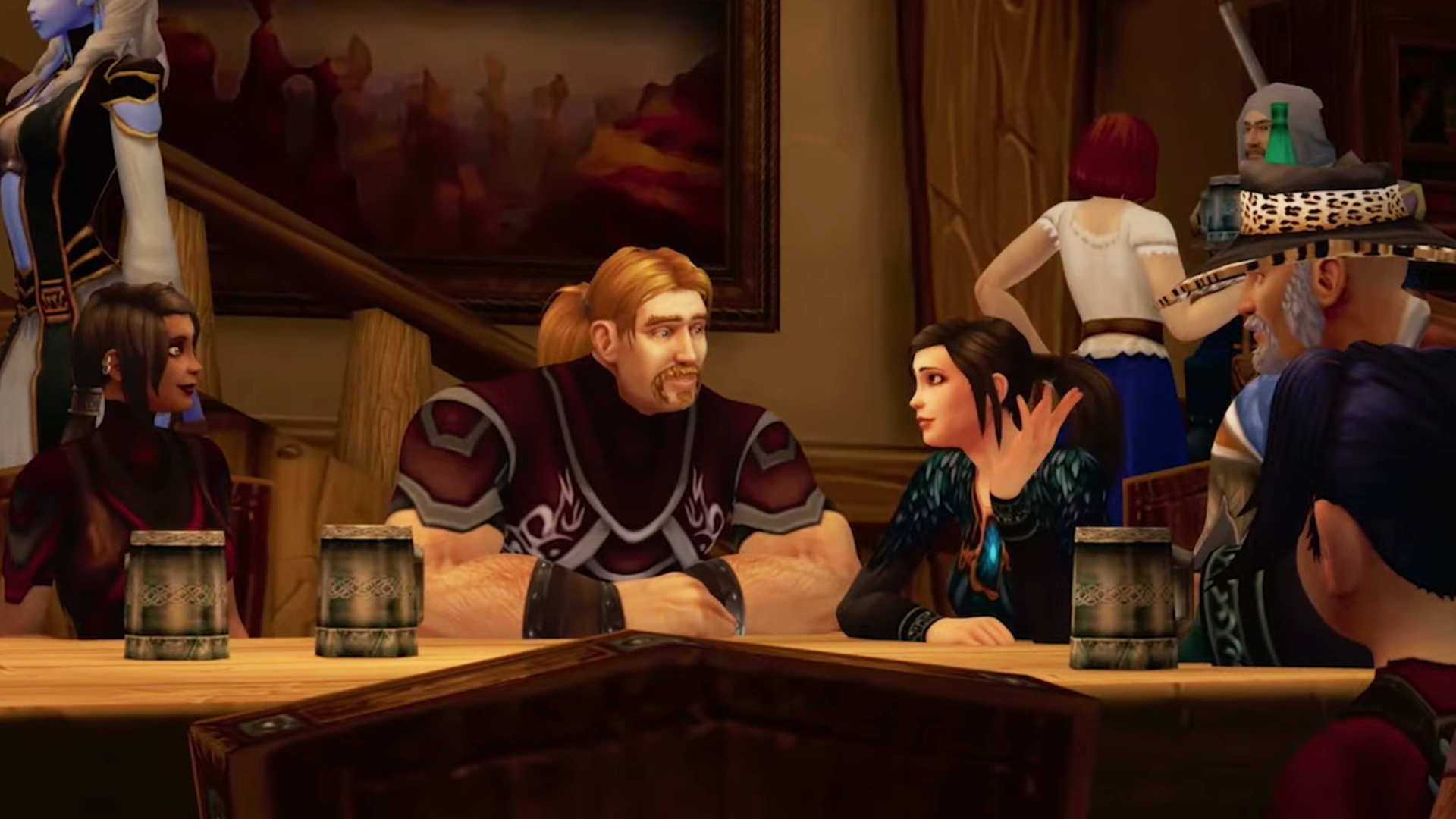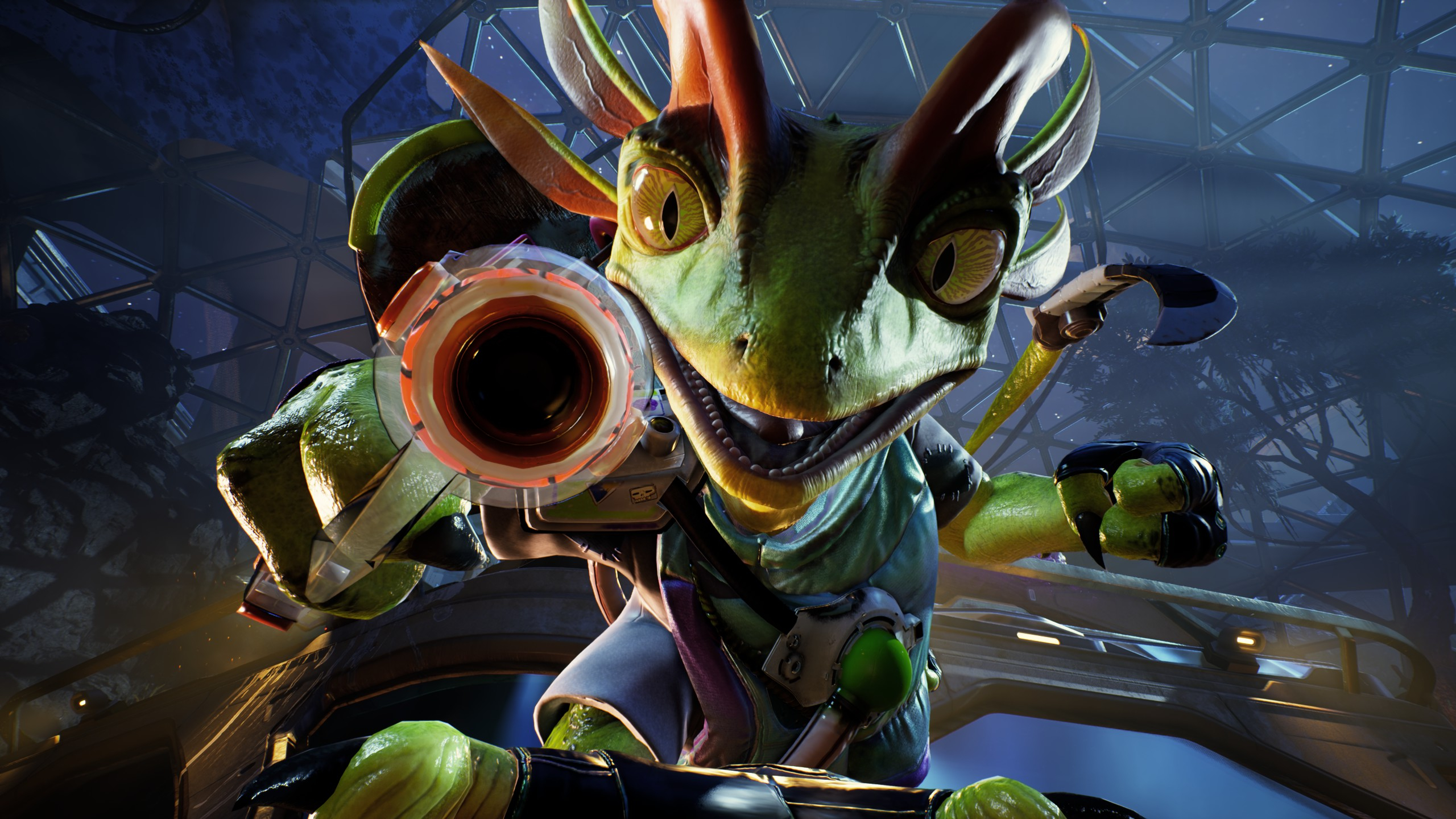The director of World of Warcraft documentary The Remarkable Life of Ibelin says it's 'a coming of age story': 'We're trying to capture a human being'
Netflix's WoW documentary captures moments from a man's other life in Azeroth, discovered by his parents after his death.

Keep up to date with the most important stories and the best deals, as picked by the PC Gamer team.
You are now subscribed
Your newsletter sign-up was successful
Want to add more newsletters?

Every Friday
GamesRadar+
Your weekly update on everything you could ever want to know about the games you already love, games we know you're going to love in the near future, and tales from the communities that surround them.

Every Thursday
GTA 6 O'clock
Our special GTA 6 newsletter, with breaking news, insider info, and rumor analysis from the award-winning GTA 6 O'clock experts.

Every Friday
Knowledge
From the creators of Edge: A weekly videogame industry newsletter with analysis from expert writers, guidance from professionals, and insight into what's on the horizon.

Every Thursday
The Setup
Hardware nerds unite, sign up to our free tech newsletter for a weekly digest of the hottest new tech, the latest gadgets on the test bench, and much more.

Every Wednesday
Switch 2 Spotlight
Sign up to our new Switch 2 newsletter, where we bring you the latest talking points on Nintendo's new console each week, bring you up to date on the news, and recommend what games to play.

Every Saturday
The Watchlist
Subscribe for a weekly digest of the movie and TV news that matters, direct to your inbox. From first-look trailers, interviews, reviews and explainers, we've got you covered.

Once a month
SFX
Get sneak previews, exclusive competitions and details of special events each month!
Earlier this week, Netflix started streaming The Remarkable Life of Ibelin. It's a documentary about Mats Steen, a Norwegian man who died at the age of 25 from Duchenne muscular dystrophy, a rare degenerative disorder. After his death, his parents—who'd feared that their son's disease had kept him from experiencing companionship—discovered that he'd lived a second life in World of Warcraft as the dashing rogue Ibelin, who spent 20,000 hours roleplaying alongside a close-knit guild of friends. Using in-game assets, the film captures moments from Mats Steen's time as Ibelin, reconstructing eight years of friendship, flirting, and connection from blog posts and archived roleplay transcriptions.
I spoke with Benjamin Ree, the documentary's director, to learn what it was about Mats Steen's story that resonated with him. Ree had first learned about Ibelin in 2019, thanks to a Facebook post from Steen's uncle—who, coincidentally, had been Ree's filmmaking teacher. While he thought it was an "extremely powerful, emotional story," Ree said he hadn't initially had any thoughts of making it into a film. That changed, however, when he learned just how much of Steen's—and Ibelin's—life had been recorded.
"I called up Mats' uncle just to tell him how much that story meant to me, and he told me that his brother had filmed Mats' whole life from the day he was born," Ree said. Not only that, but Steen's uncle said that Starlight—Ibelin's guild—had maintained a massive archive of transcribed roleplay interactions. "That was the moment I thought, 'Maybe it's possible to make a documentary here.'"
Steen's parents, however, were "very unsure if they wanted to be a part of a film," Ree said, but they were looking to have their recordings of Mats' life digitized. Ree offered to handle the digitizing regardless of whether it'd lead to a documentary, and what followed was a moment of serendipity.
"The first footage I saw was of Mats as a baby. He was around 8 months old, and right beside Mats was another baby." That other baby, Ree thought, looked familiar.
"I felt it looked a little bit like me as a baby, but I also thought, 'Oh, it can't be that.' I was just laughing it off," he said. But then he started recognizing more faces. His parents were on the tape, too.
"I called up my mother and asked if she could look at our family album, and there she found a picture of Mats and me together in a playpen," Ree said. His parents and the Steens had been family friends, before growing apart after Ree's family moved to a different part of Norway. "I had met Mats without knowing it. It almost felt like it was meant to be."
Keep up to date with the most important stories and the best deals, as picked by the PC Gamer team.
As he began charting Steen's eight years in World of Warcraft, Ree said it felt like uncovering what was, to him, a classic "coming of age story."
"One of the first things I saw and realized when I began reading the chat logs and roleplay dialogue was that Mats had experienced a lot of the same things as I had experienced growing up—making friends, experiencing love, behaving badly, losing contact with two of his best friends and getting them back again," Ree said. "The main difference was that Mats had experienced those things inside of a game, and I had experienced that in real life."
I asked Ree what kind of understanding he'd gained about Mats Steen from reading his blog, sifting through thousands of his roleplaying transcripts, and interviewing the guildmates who knew him as Ibelin. "Mats was a very intelligent, charming, shy, honest, funny person. He was a great listener," Ree said. "At the same time, he could be self-destructive—he could lie, he could withhold information, he could lash out towards his friends, he could be angry. Because of all the difficulties he faced, he could want to hide behind the screen."
Showing the full breadth of Steen's personality, Ree said, was one of the film's goals—even in moments where it might be less than flattering. The alternative would mean dehumanizing Steen in the way people with disabilities are so often portrayed: as caricatures with one-dimensional positivity.
"These are all personality traits that are opposites of each other, and that's how life is. And that's also how, according to Mats' friends and family, he would want to be portrayed—not as a saint, but as a human," Ree said. "We all have positive and negative sides. That's what we're trying to explore in this film. We're trying to capture a human being."
Ree, who's never played World of Warcraft himself, said he also learned to appreciate the connections that digital spaces like MMOs can offer the people inhabiting them. "I think that online and virtual friendships like this have a great value, and one of the values is that they spend a lot of time together," Ree said.
"I'm lucky today if I can meet my best friend every second week. And then we have like 37 minutes to spend time together," Ree said. In comparison, World of Warcraft gave Steen and his guildmates orders of magnitude more time to share. "Mats and his friends, they were together a lot—sometimes five hours every day."
With all that shared time in Azeroth, Ree thinks Steen had a chance to connect with his friends online in a way he might not have been able to if their time together was subjected to any number of real-world constraints. "Mats, he asked his friends all the time how they were doing," Ree said. "And there's so many ways to ask that question. You can really feel the difference between 'How are you doing?' and 'How are you really doing? I have the time to listen to you.' And Mats prioritized spending time with his friends and listening."
The Remarkable Life of Ibelin is available on Netflix now.

Lincoln has been writing about games for 12 years—unless you include the essays about procedural storytelling in Dwarf Fortress he convinced his college professors to accept. Leveraging the brainworms from a youth spent in World of Warcraft to write for sites like Waypoint, Polygon, and Fanbyte, Lincoln spent three years freelancing for PC Gamer before joining on as a full-time News Writer in 2024, bringing an expertise in Caves of Qud bird diplomacy, getting sons killed in Crusader Kings, and hitting dinosaurs with hammers in Monster Hunter.

